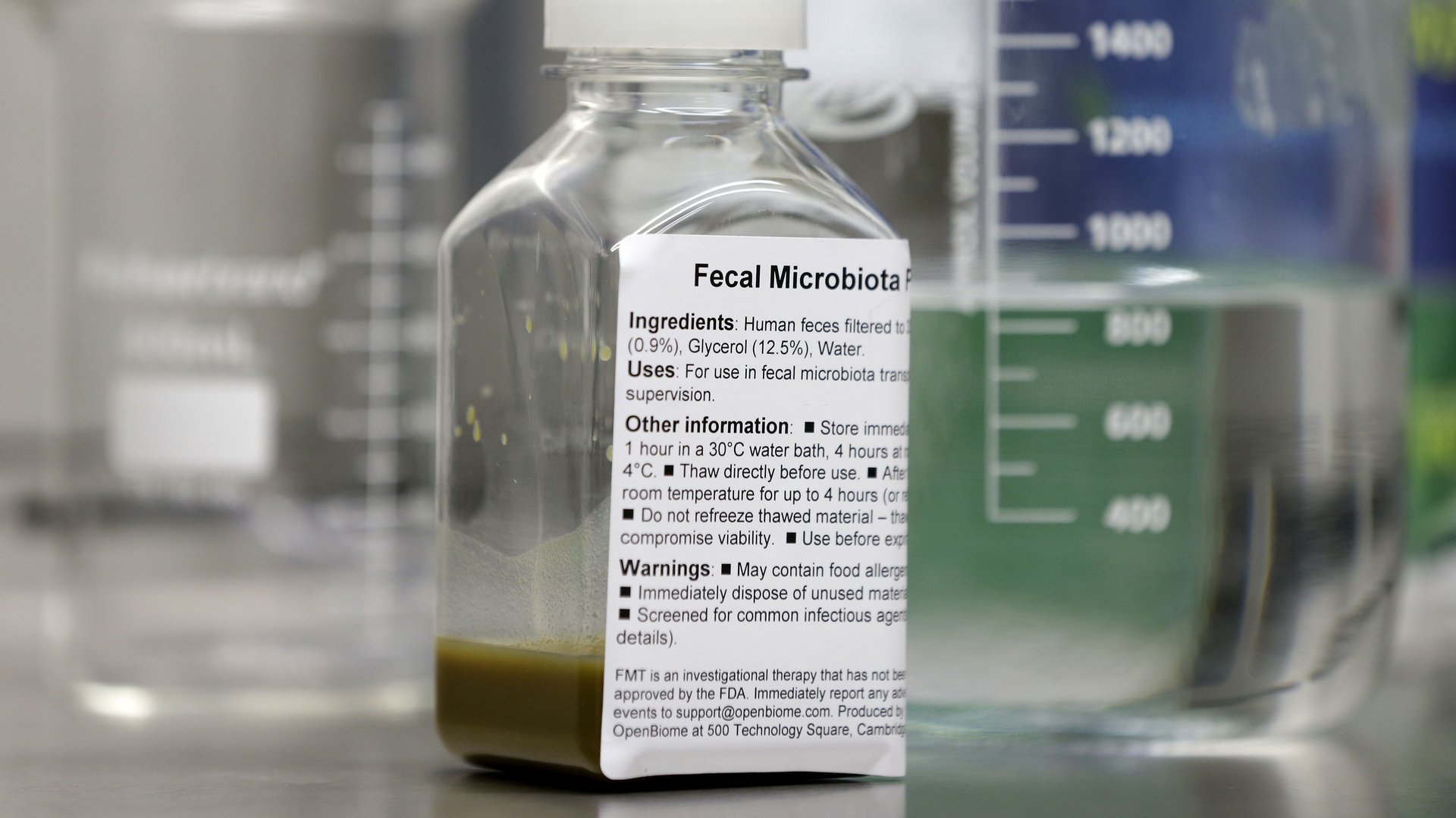Scientists are testing whether freeze-dried fecal pills could treat obesity
This year, scientists are planning to trial an unappetizing-sounding weight-loss method: 20 obese patients will be given a daily pill containing a couple of grams of someone else’s freeze-dried fecal matter.


This year, scientists are planning to trial an unappetizing-sounding weight-loss method: 20 obese patients will be given a daily pill containing a couple of grams of someone else’s freeze-dried fecal matter.
Researchers, led by Elaine Yu, an assistant professor and clinical researcher at Massachusetts General Hospital, will use the clinical trial to study whether fecal samples taken from healthy donors can help obese patients lose weight.
Feces contain intestinal microbes, and the plan is that these microbes will be transplanted into the gut of whoever takes the pills. As tech website Ars Technica reports, feces pills have previously been used to transplant intestinal microbes and effectively treat gut infections.
And some evidence suggests that these microbes could affect body weight. A 2013 study gave mice intestinal microbe transplants taken from four sets of human twins, where one twin was a healthy weight and the other was obese. The mice who received an obese twin’s microbes gained weight, regardless of their diet. The researcher behind the study, Jeffrey Gordon of Washington University in St. Louis, told the Scientific American that his study suggests a cause-and-effect relationship between gut microbes and that it’s “possible to prevent the development of obesity.”
Meanwhile, a 2008 study of twins found evidence that having less diverse intestinal microbes is linked with obesity. And in 2014, researchers from Cornell University’s Department of Molecular Biology and Genetics found that heritable strains of gut microbiotas can influence obesity.
Yu told Ars that the researchers “have no idea what the result will be,” but are cautiously optimistic about the trial. If all goes well, she said she hopes microbe treatments could be used as a method to treat obesity.
The transplants wont begin until later this year, and will see subjects take fecal pills for six weeks as researchers track their weight.